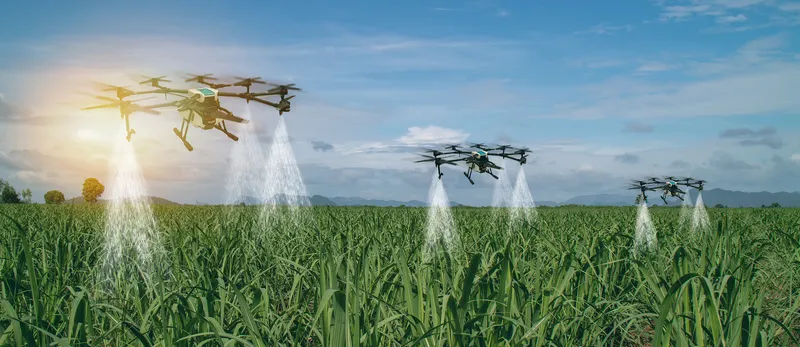Game of drones: Sky’s the limit, says the CEO of Garuda Aerospace
India’s drone industry has gained momentum in recent years, spurred by government initiatives, says Garuda's CEO, while Marut Drones' co-founder notes the potential of drones in agriculture.
India’s drone industry has gained momentum in recent years, spurred by policy changes and government initiatives that have provided impetus to startups in the sector, said Agnishwar Jayaprakash, Founder and CEO of Garuda Aerospace.
Highlighting the potential of the drone industry, Jayaprakash said the game has just begun for drones and sky’s the limit with respect to where they can be utilised.
“Drones can disrupt several multibillion-dollar segments and industries,” Jayaprakash noted, during a discussion with Sai Kumar, Co-founder and CMO of Marut Drones, at TechSparks 2023.
He said that, over the past four to five years, the drone industry has experienced a significant amount of traction in civilian and defence sectors.
There’s been a notable shift towards indigenous production, propelled by progressive government policies and initiatives such as the Production Linked Incentive, which are encouraging domestic drone manufacturing, said Garuda Aerospace's CEO.
Government initiatives such as loans and subsidies for drones, alongside investment and support from major players like Adani and Reliance, indicate a promising trajectory for the drone industry, benefitting startups like Garuda and Marut.

Marut Drones’ Kumar noted that the newfound accessibility to drone technology, which was previously restricted despite its immense potential, is a big step forward for the agricultural sector.
“Considering that over 50% of India’s population is dependent on agriculture, getting access to this technology will revolutionise agricultural operations,” he remarked, adding that drone technology can enable other industries to enhance speed and precision, resulting in increased profitability.
Vast use cases
Drones have also found use in healthcare, project monitoring, industry 4.0, and logistics, evolving into a drone-as-a-service model within the sector.
Garuda has used drones with robotic arms for solar panel cleaning and diversified its drone types with specialised instruments such as probe sensors, magnetometers, high-powered sprayers, and lasers, as well as advanced cameras such as LIDAR, multispectral, and hyperspectral cameras to capture data in innovative ways.
The integration of AI and 5G into its drones is enabling Garuda to provide a whole range of services that could increase efficiency and reduce expenses for clients, said Jayaprakash.
For tasks such as survey mapping and data analysis, AI becomes crucial, noted Marut’s Kumar.
Drones can leverage AI to detect crop conditions, identify pest infestation, estimate yield, monitor livestock counts in animal husbandry, and enable effective object detection in surveillance.
“Drones have a unique place in the startup ecosystem where you can have hardware, software, AI and data, all merged as one. And that unlocks tremendous value in what investors see, in terms of the potential in what we can do,” Jayaprakash said.
Skilling and training
Marut, according to Kumar, prioritises responsible usage over mere sales, making sure the drones are in the right hands and are being used for the right purpose.
Training is an important party of the process; a remote pilot licence is required for operating a drone, aligning with DGCA compliances.
The government’s investment in skill development will provide a critical boost to the sector, believes Kumar. The entire ecosystem will thrive when drone services are operationalised, with well-trained individuals, particularly in handling and maintaining drones effectively, he added.
Today, drones are significantly autonomous, and young individuals can quickly grasp this technology, which offers a sustainable avenue for employment, said Jayaprakash, adding that, with proper training in drone operations, one can potentially earn over one lakh rupees every month.
Drone startups like Garuda and Marut are focused on the agricultural segment, wherein farmers invest Rs 20,000 to Rs 25,000 crore annually, according to Jayaprakash.
Pesticides and fertilisers must be sprayed across the fields at least six to eight times a year, and this means rural entrepreneurs must be skilled and trained in drone operations.
“Skilling and training, especially in emerging tech and AI segments, in schools and colleges, are vital to provide a sustainable methodology of employment to our youth, both in rural and urban areas,” said the CEO of Garuda Aerospace.
Jayaprakash emphasised the importance of strategic alliances and partnerships between fintech, AI, and drone companies in the drone sector to harness the immense potential of drone tech and position India as the global drone capital by 2030.
Edited by Swetha Kannan







